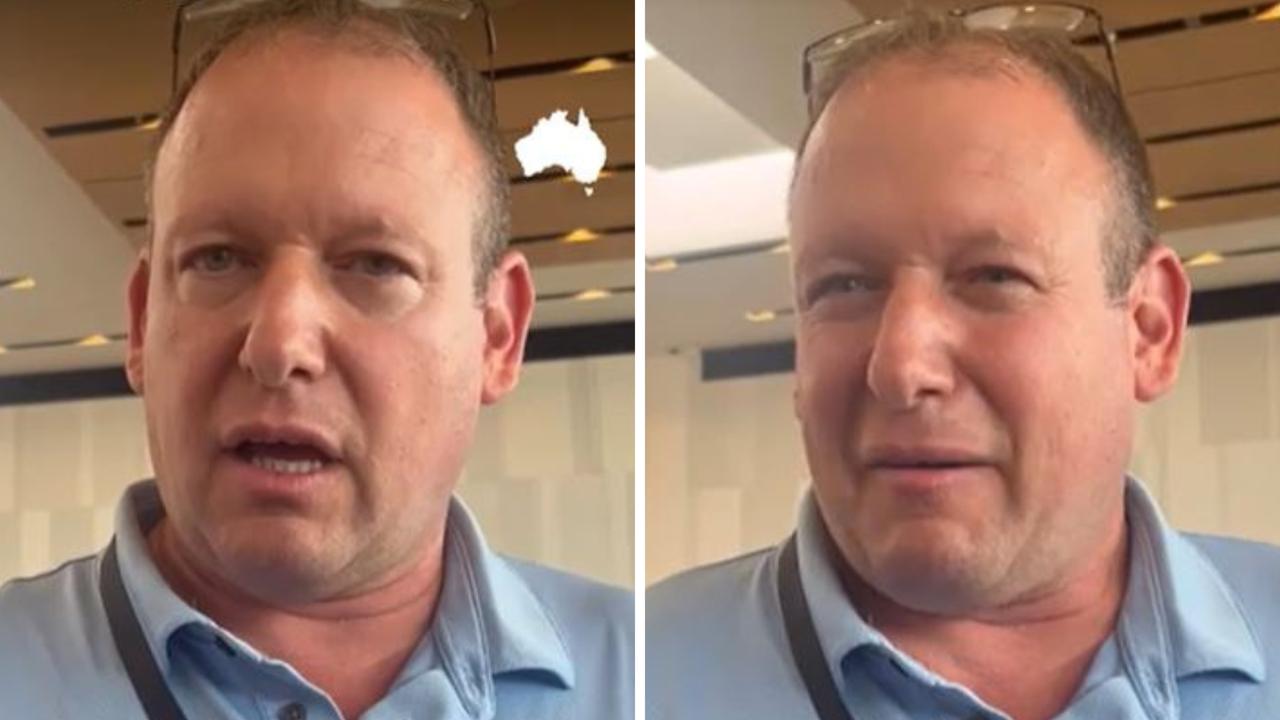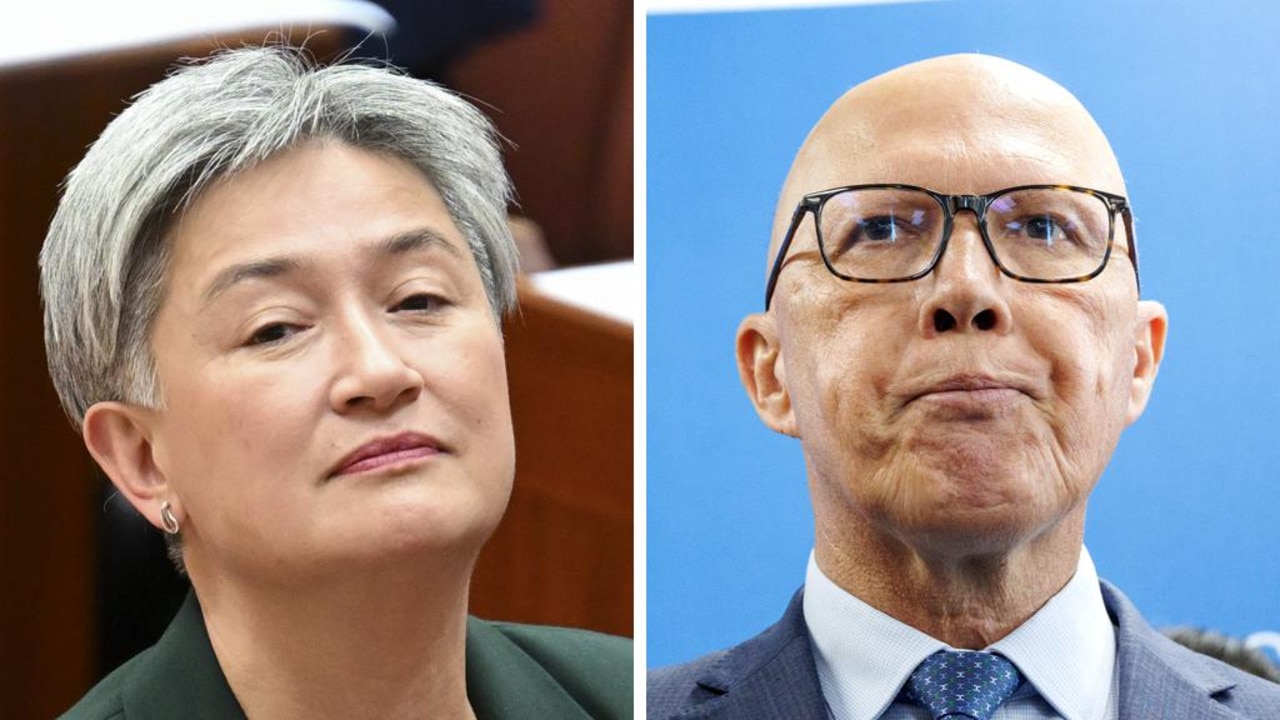South Korea’s President Yoon Suk Yeol now a dead man walking after martial law fiasco
South Korea’s president is in serious trouble after the nation descended into chaos today – and Australia won’t be immune from the fallout.
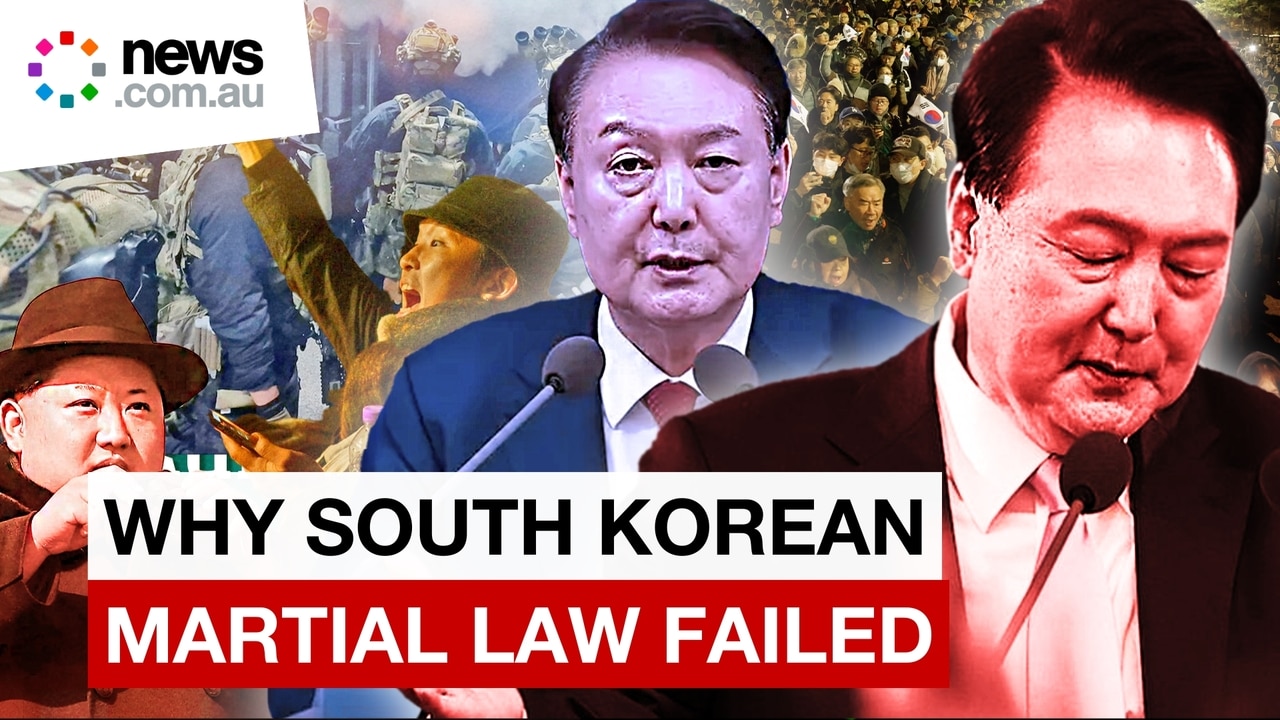
Leaders
Don't miss out on the headlines from Leaders. Followed categories will be added to My News.
Emergency action? Failed coup attempt? Temper tantrum? South Korea’s President Yoon Suk Yeol has ignited a political firestorm after an attempt to impose martial law collapsed into a fiasco.
The embattled conservative party leader made an unannounced television appearance on Tuesday evening to accuse opposition political parties of collaborating with North Korea to send the South “into the depths of national ruin”.
“I will eliminate anti-state forces as quickly as possible and normalise the country,” President Yoon proclaimed.
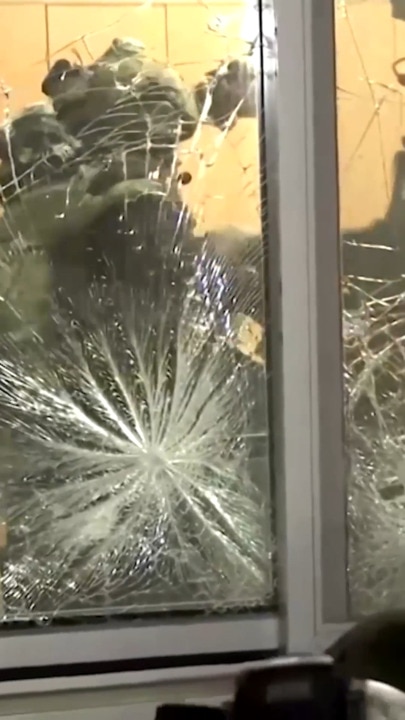
“Our National Assembly has become a haven for criminals, a den of legislative dictatorship that seeks to paralyse the judicial and administrative systems and overturn our constitutional democratic order,” he insisted.
Yoon then suspended constitutional protections for politicians, emergency workers and the media.
General Park An-su, appointed by Yoon as “martial law commander”, quickly issued a decree banning “all political activities”.
His troops rapidly surrounded Parliament House to block politicians from entering. Some entered the building in an attempt to remove politicians, with military helicopters seen landing on the roof.
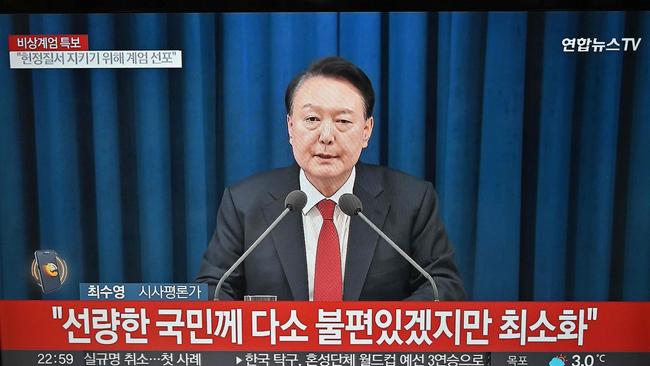
But live-streamed footage of the ensuing scuffles showed opposition party MPs pushing past military and police officers, and climbing barricades to reach the nation’s legislative heart.
Opposition Rebuilding Korea Party member Kim Joon-hyung told media how he wrestled his way through security forces to attend the National Assembly vote.
“I’m sore all over,” he told the VoA news service. Police and military officers appeared “confused”, he added, and had not attempted to forcefully block politicians from entering.
Some 190 politicians made their way through – including 18 from Yoon’s own People Power Party (PPP).
All voted to overturn the three-hour-old martial law decree.
The motion was passed as South Korea’s constitution demands a simple majority of its 300-seat parliament to overturn a presidential decree.
With confusion reigning on the streets of Seoul, President Yoon conceded defeat. But South Korea’s political crisis is far from over.
“This is the end of Yoon’s presidency. Full stop,” Chicago Council on Global Affairs Korea analyst Karl Friedhoff told VoA.
“The only question is how his presidency will end and how much violence it will entail.”
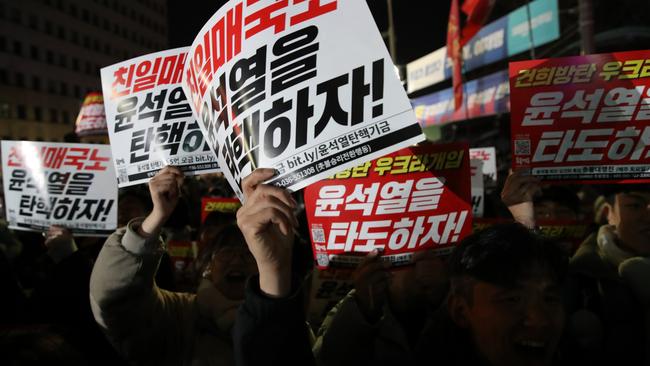
Impact on Australia
The fallout of any long-lasting political chaos in Seoul will reach as far afield as Australia.
It is Canberra’s fourth-largest trading partner, and third-largest export market. And more and more of us are flocking to South Korea each year, with more than 90,000 Australian tourists visiting there in the 2022-23 financial year. Australian Travel Industry Association spokesman Dean Long said the nation’s increasing popularity among Aussie travellers was a result of the “cultural phenomenon” surrounding the country’s music scene and streaming media productions.
South Korea’s advanced industries are also involved with several major Australian space and defence contracts, including a $A7 billion project to build 129 new armoured infantry fighting vehicles for the army.
But any weakening of Seoul’s strategic ties with the West will also have far-reaching implications.
Rogue nuclear neighbour North Korea has forged a new militaristic relationship with Russia and renewed its threats of nuclear war with the United States. And South Korea sits astride the increasingly tense East China Sea and Sea of Japan.
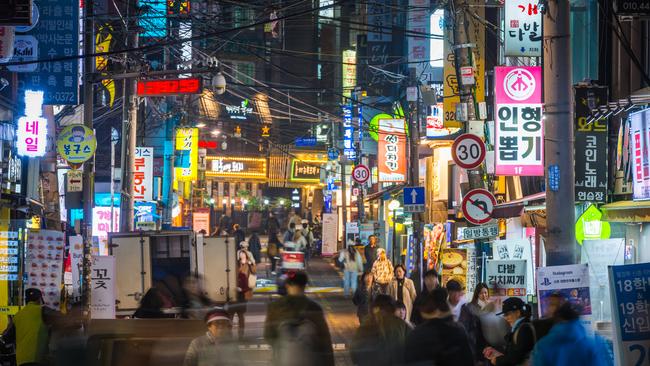
Chaos
“To safeguard a liberal South Korea from the threats posed by North Korea’s communist forces and to eliminate anti-state elements … I hereby declare emergency martial law,” Yoon asserted.
No evidence of North Korean interference or infiltration was offered.
Instead, he lambasted his domestic political opponents.
“Our parliament, which should serve as the foundation of democracy, has become a monster toppling it,” Yoon accused during his surprise declaration of martial law.
Opposition figure Lee Jae-myung responded by denouncing Yoon’s decree as “illegal and unconstitutional”.
The move to evict politicians from Parliament quickly drew thousands of protesters chanting, “Arrest Yoon Suk Yeol” and “Withdraw martial law”. But, despite scuffles with police and troops, there was no concerted effort to break up the crowds.
Inside the National Assembly, the Opposition Speaker of Parliament said the resolution made President Yoon’s martial law declaration “null and void”. Politicians cheered as he ordered soldiers and police to leave the assembly hall and parliamentary grounds.
General Park An-su responded by saying martial law would “remain in place until lifted by the president”.
Three hours after his decree, President Yoon backed down.
“Just a moment ago, there was a demand from the National Assembly to lift the state of emergency, and we have withdrawn the military that was deployed for martial law operations,” President Yoon Suk Yeol said in a televised address.
“We will accept the National Assembly’s request and lift the martial law through the cabinet meeting.”
Yoon went on to say military personnel would be withdrawn, and he would formally end martial law “as soon as members arrive” for a parliamentary Cabinet meeting.
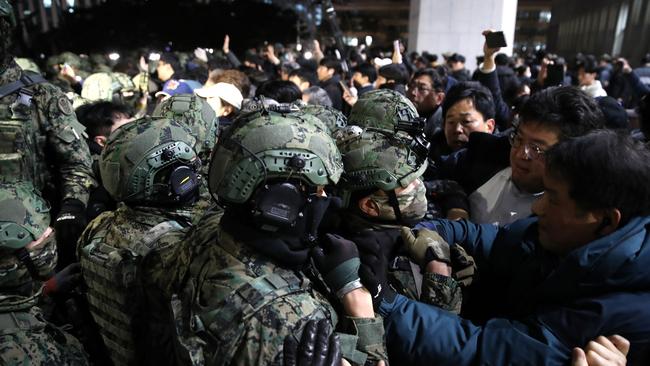
What was he thinking?
“Through this martial law, I will rebuild and protect the free Republic of Korea, which is falling into the abyss of national ruin,” Yoon declared.
“To this end, I will definitely eradicate the anti-state forces who are the main culprit of the country’s ruination and conduct vicious activities.”
But the South Korean conservative President’s political troubles result from a dramatic popularity collapse among voters.
Yoon was elected to the five-year presidency in May 2022 with a majority of less than one per cent. His approval rating has since fallen to under 20 per cent in a recent poll amid intense criticism of his handling of the national economy and corruption scandals surrounding his wife, Kim Keon Hee, and leading officials in his government.
Yoon has responded by labelling accusers and the opposition as “anti-state” actors.
The opposition Democratic Party won a two-thirds majority in parliament in national elections earlier this year. And it has used this position to slash some $A4.3 billion dollars from Yoon’s budget plans to increase the size and powers of state police and audit agencies.
Yoon has accused the opposition of blocking “key budgets essential to the nation’s core functions, such as combating drug crimes and maintaining public security … turning the country into a drug haven and a state of public safety chaos”.
But President Yoon’s state auditor and chief prosecutor have been impeached by parliament amid corruption allegations.
And his falling popularity has been attributed to a sluggish economy, rising house prices and general wages falling behind inflation. One of his martial law measures was to order doctors, who have been striking since February, back to work within 48 hours.
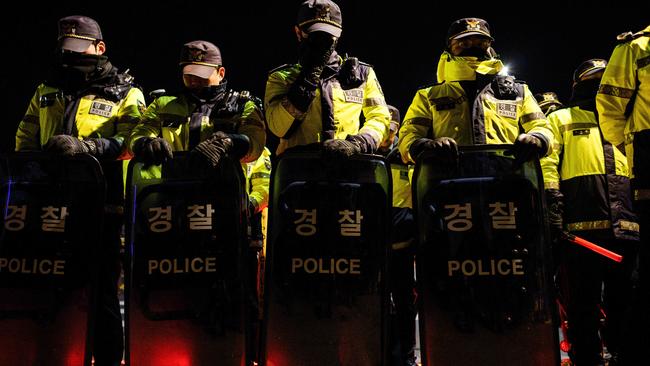
Yoon’s days are numbered
Now, Yoon’s own political chief appears to be turning against him.
The head of the PPP, Han Dong-hoon, posted to social media during the confrontation that the “martial law declaration is wrong” and that he would “work with the citizens to stop it”.
In a TV broadcast, he also said the president “must directly and thoroughly explain this tragic situation” and that “all those responsible must be held strictly accountable”.
And South Korea’s opposition Democratic Party house floor ladder, Park Chan-dae, has called for President Yoon Suk Yeol to step down, adding that he “cannot avoid treason charges” over his actions.
“It was clearly revealed to the entire nation that President Yoon could no longer run the country normally. He should step down,” he said.
A major South Korean labour union, the Korean Confederation of Trade Unions, is also pushing for an “indefinite general strike” until Yoon steps down following the debacle, claiming the leader’s actions had “declared the end of (his) own power”.
Jamie Seidel is a freelance writer | @jamieseidel.bsky.social
Originally published as South Korea’s President Yoon Suk Yeol now a dead man walking after martial law fiasco




